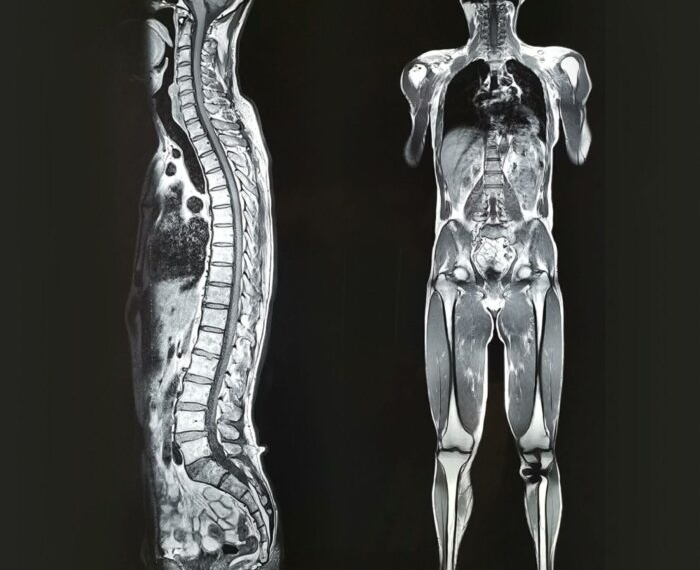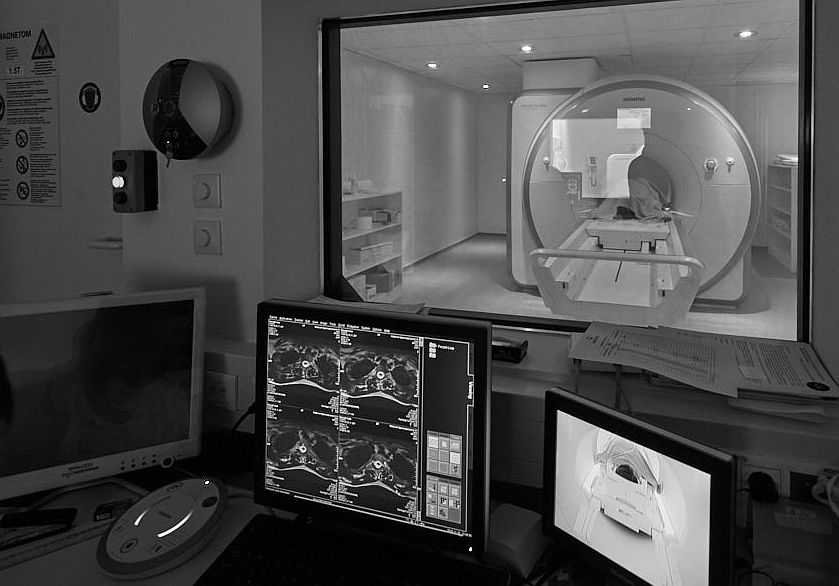Whole body MRI examination
The primary goal of the whole body MRI scan, which examines the entire body, from the cranium to the pelvis, is the early detection of cancerous, inflammatory, and degenerative lesions. It allows us to get a comprehensive picture of the condition of our body and organs.
Which body parts are examined?
The spectrum of the whole body MRI scan extends from the cranium to the lesser pelvis. The examination includes the cranium and its vascular plexus, the entire spine (neck, back, lumbar section), the soft tissues of the neck, the heart (which is not the same as the heart MRI scan!) and the position of the chest cavity, organs located in the abdomen (liver, stomach, pancreas, bile, kidneys, intestines) and female/male genitals in the lesser pelvis. However, the scan does not include examination of the limbs and joints.
What kind of preparation is required?
The scan is performed without the administration of a contrast agent and therefore does not require any special preparation. It is not necessary to arrive on an empty stomach for the examination. No medical advice or referral is required to perform the scan. Due to the strong magnetic field, it is forbidden to bring any metal, device or object containing metal into the examination room. This also applies to jewellery and piercings in the body.

How is a whole body MRI scan performed?
The MRI imaging machine resembles a thick tube into which the examination bed lifts the patient. During the examination, the patient lies motionless on their back while the images are being taken.
Prior to the scan, the operator places the coils required to make the recordings. The examination is then performed without interruption.
You have to lie still during the examination. The MRI device is noisy, a knocking, clicking, and machine sound can be heard during the examination, the intensity of which can be reduced by using earplugs. An escort may be in the room during the test.
When can the examination not be performed?
If any magnetically responsive material (joint prosthesis, nail, screw, metal valve, pacemaker, tourniquet, implant, etc.) is implanted in the body, the examination cannot be performed. These can move out of place during the scan in a strong magnetic field and, in severe cases, can cause injury, and the resulting image of the organ being examined can become invaluable.
Are there any side effects?
The examination has no side effects. If the patient is prone to claustrophobia, the scan may be difficult to be performed. This can be mitigated by the fact that the machine’s diameter is larger than average with its 70 cm.
Important information about the whole body MRI scan
To book an examination, you must pay a 100% deposit, which must be paid at least 2 working days before the examination by bank transfer or by personal payment at our reception. We also accept a Mutual Health Fund card at our reception to pay the deposit. You can get more information about the advance payment from our colleagues when booking your appointment.
The full fee of the examination must also be paid in the event of any interruption of the scan by the patient. If you do not show up at the scheduled examination date and have not cancelled it on working days at least 2 working days in advance, Medicover reserves the right to withhold 100% of the fee for the non-cancelled examination.

When is the result expected?
The completed scan will be reviewed by the radiologist and the result will be available in our online system after 5 working days.
